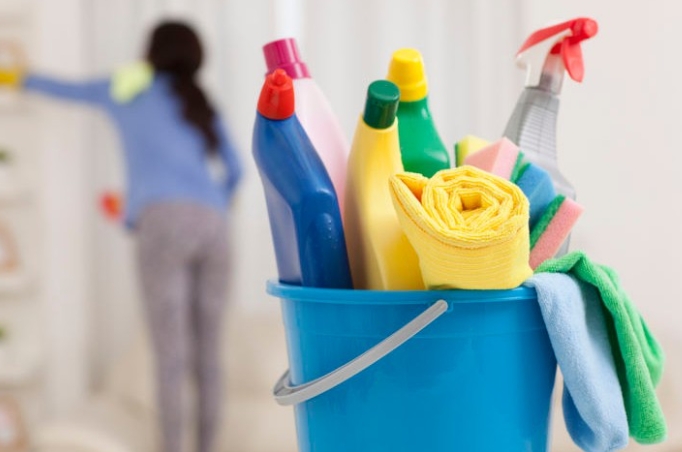Cleaning materials play a crucial role in maintaining cleanliness and hygiene in various settings, such as homes, workplaces, and public spaces. However, it is equally important to store these materials safely to prevent accidents, protect the environment, and ensure their effectiveness. In this blog post, we will explore why safe storage of cleaning materials is essential and provide practical tips for doing so.
- Preventing Accidents:
Storing cleaning materials safely is vital to prevent accidents, especially in households with children or pets. Many cleaning products contain hazardous chemicals that can cause harm if mishandled or ingested. By storing them securely, out of reach and sight, we can minimize the risk of accidental poisoning or injuries. - Protecting the Environment:
Improper storage of cleaning materials can lead to environmental contamination. Some cleaning products contain toxic substances that, if not stored correctly, can seep into the soil or waterways, causing harm to plants, animals, and ecosystems. By storing these materials safely, we can help preserve the environment and reduce our ecological footprint. - Ensuring Effectiveness:
Proper storage of cleaning materials also ensures their effectiveness over time. Exposure to extreme temperatures, moisture, or direct sunlight can degrade the quality and potency of these products. By storing them in cool, dry places away from direct sunlight, we can extend their shelf life and maintain their cleaning power. - Organized and Efficient Cleaning:
Safe storage of cleaning materials promotes organization and efficiency in cleaning routines. When all the supplies are stored in designated areas, easily accessible and properly labeled, it saves time and effort in locating and using them. This approach also helps prevent cross-contamination and ensures that the right products are used for specific cleaning tasks. - Compliance with Regulations:
Proper storage of cleaning materials is often a legal requirement in many industries, such as healthcare, hospitality, and food services. Regulatory bodies enforce guidelines to ensure the safe handling, storage, and disposal of these materials. By adhering to these regulations, businesses can avoid penalties, maintain a safe working environment, and protect their reputation.
Conclusion:
Safe storage of cleaning materials is not only essential for preventing accidents and protecting the environment but also for ensuring their effectiveness and maintaining organized cleaning routines. By following proper storage practices, we can promote safety, efficiency, and compliance with regulations. Remember to always read and follow the manufacturer's instructions and consult local guidelines for specific storage requirements.

